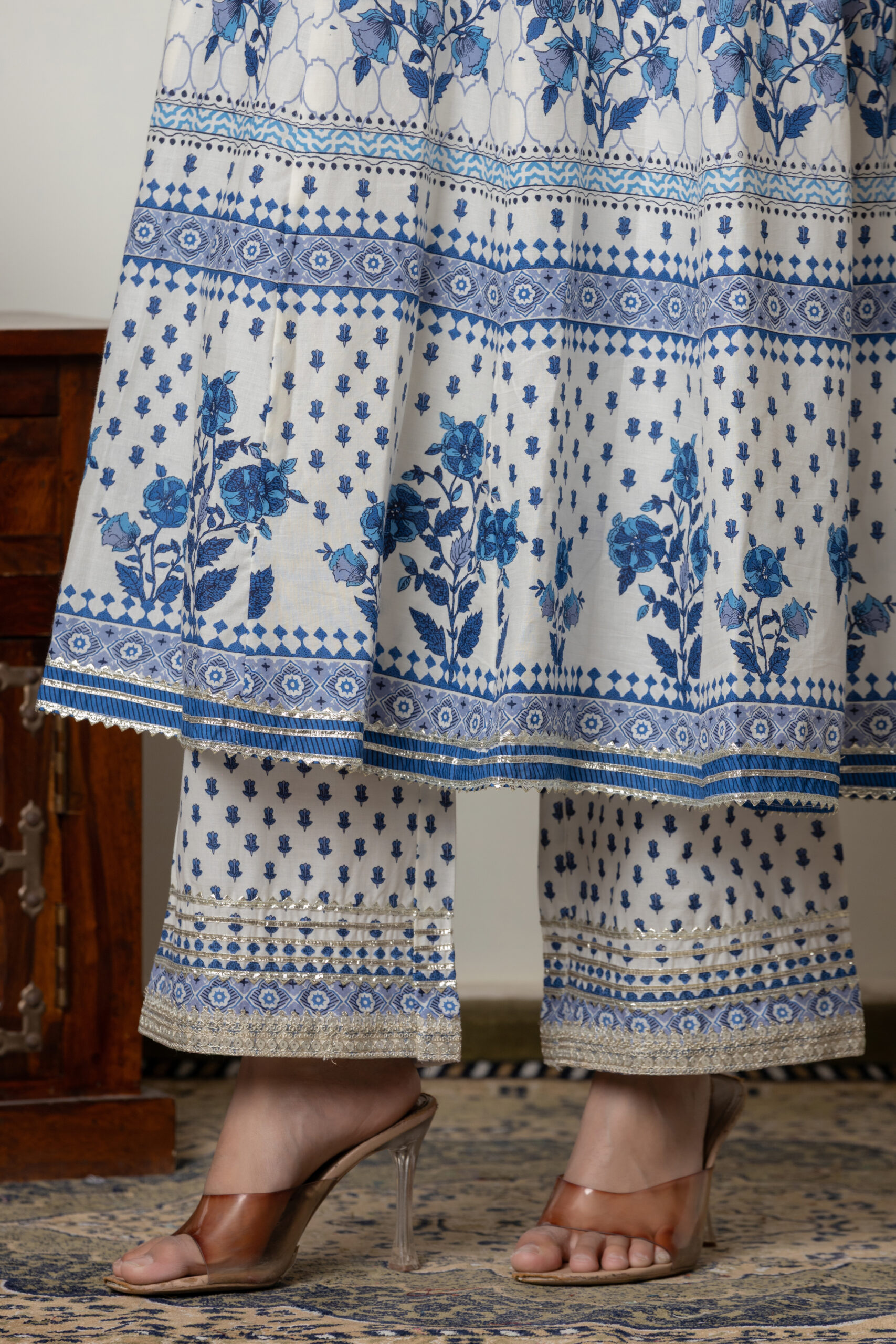
Ladies Kurti

Shop by categories




We Are here, for you
India’s Leading Readymade Clothing & Garment Manufacturer in Jaipur
Garment & Clothing Manufacturer & Exporter in Jaipur, India
Wholesalegarments.in – Crafting Quality, Style & Global Trust
Jaipur, the heart of India’s textile and fashion heritage, is home to some of the country’s most skilled garment artisans. At wholesalegarments.in, we proudly stand as a leading garment & clothing manufacturer and exporter in Jaipur, India, delivering fashion-forward, high-quality apparel to domestic and international markets.
Blending traditional craftsmanship with modern production techniques, we specialize in women’s garments, ethnic wear, and contemporary fashion collections designed to meet global standards. From concept to completion, our manufacturing process focuses on design excellence, fabric quality, ethical production, and timely delivery.
Whether you are a fashion brand, boutique owner, wholesaler, or international importer, wholesalegarments.in is your trusted partner for scalable, stylish, and cost-effective garment manufacturing solutions.
Women Garment Manufacturers
As one of the most reliable women garment manufacturers in Jaipur, we create fashion that resonates with modern women while honoring India’s rich textile traditions. Our women’s apparel collections are thoughtfully designed to balance comfort, elegance, durability, and trend relevance.
From everyday wear to festive and occasion outfits, our women’s garments cater to diverse age groups and style preferences. Each piece undergoes strict quality checks to ensure flawless stitching, premium finishing, and long-lasting wear.
Cách đánh bài Tam Cúc cho người mới đầy đủ nhất – Whole Sale Garments
Tìm hiểu cách chơi bài Yugioh và những điểm hấp dẫn nổi bật – Whole Sale Garments
Top game đánh bài PVP online hay nhất nên trải nghiệm – Whole Sale Garments
Our in-house design team continuously studies global fashion trends, enabling us to deliver collections that appeal to both Indian and international markets.
Women Readymade Garment Manufacturers
As experienced women readymade garment manufacturers, we offer ready-to-sell apparel that meets the fast-paced demands of today’s fashion industry. Our readymade collections are ideal for retailers and wholesalers seeking consistent sizing, superior quality, and contemporary designs.
We manufacture women’s readymade garments using advanced cutting and stitching techniques, ensuring uniformity across bulk orders. Our production capacity allows us to handle small, medium, and large-scale requirements without compromising on quality.
With flexible customization options, clients can choose fabrics, colors, prints, and silhouettes tailored to their brand identity.
Readymade Garment Manufacturers
wholesalegarments.in is a trusted name among readymade garment manufacturers in India, offering a wide range of apparel for domestic distribution and export markets. Our readymade garments are designed for comfort, durability, and mass appeal, making them ideal for retail chains and online fashion platforms.
We follow a streamlined manufacturing process that includes fabric sourcing, pattern development, cutting, stitching, finishing, and packaging, all under strict quality control.
Our commitment to timely delivery and competitive pricing makes us a preferred manufacturing partner for growing fashion businesses worldwide.
Women Clothes Manufacturers in India
Dự Đoán Xổ Số Miền Nam BK8 – Phương Pháp Dự Đoán Hiệu Quả – Whole Sale Garments
BK88.blog – Lô Gan là gì? – Phương Pháp Chọn Số Tối Ưu Chơi Lô Đề – Whole Sale Garments
Recognized among top women clothes manufacturers in India, we offer a diverse portfolio of ethnic and contemporary women’s wear. Our collections are inspired by Indian craftsmanship, global fashion aesthetics, and evolving consumer preferences.
From breathable cottons to luxurious blends, we source premium fabrics that enhance comfort and style. Each garment is crafted with attention to detail, ensuring elegance in every stitch.
Our women’s clothing lines are suitable for boutiques, wholesalers, exporters, and private labels, making us a versatile manufacturing partner.
Anarkali Suit Manufacturers in India
As renowned Anarkali suit manufacturers in India, we create timeless silhouettes that celebrate Indian heritage. Our Anarkali suits are known for their graceful flares, intricate detailing, rich fabrics, and impeccable tailoring.
Perfect for weddings, festivals, and formal occasions, our Anarkali collections combine traditional embroidery techniques with modern color palettes and design sensibilities.
We offer customization in terms of fabric, embroidery, size range, and embellishments, catering to both domestic and international fashion markets.
Indian Ethnic Wear Manufacturer for Women
wholesalegarments.in is a trusted Indian ethnic wear manufacturer for women, offering apparel that reflects India’s cultural richness and artisanal excellence. Our ethnic wear collections are crafted to preserve authenticity while embracing modern fashion trends.
From kurtis and kurta sets to festive ensembles, our designs showcase handcrafted prints, embroidery, and premium fabrics. Each piece is designed to appeal to women who appreciate tradition with a contemporary twist.
Our ethnic wear is highly sought after by export buyers looking for authentic Indian fashion with global appeal.
Women Kurtis Manufacturers in India
As experienced women kurtis manufacturers in India, we create versatile kurti designs suitable for casual wear, office wear, festive occasions, and everyday fashion. Our kurtis are admired for their comfortable fits, stylish patterns, and long-lasting fabrics.
We offer a wide variety of silhouettes, including straight-cut, A-line, flared, and layered kurtis. From minimal prints to bold ethnic motifs, our collections cater to varied customer tastes.
Bulk manufacturing and private labeling options make us an ideal partner for brands and wholesalers.
Kurta Dupatta Sets
Our kurta dupatta sets are designed for women who seek effortless elegance. These sets combine beautifully tailored kurtas with matching dupattas, creating a complete and stylish ensemble.
Available in a range of fabrics, prints, and color combinations, our kurta dupatta sets are perfect for daily wear, festive occasions, and semi-formal events. Attention to detail in prints, borders, and finishes ensures a premium look and feel.
These sets are popular among retailers for their ready-to-sell appeal and high customer demand.
Shorts & Maxi Dresses
To cater to modern fashion trends, we manufacture stylish shorts & maxi dresses that blend comfort with contemporary design. Our dresses are ideal for casual wear, resort fashion, and summer collections.
Designed using breathable fabrics and flattering cuts, our shorts and maxi dresses offer ease of movement and effortless style. From minimal solids to vibrant prints, our designs appeal to global fashion sensibilities.
These collections are especially popular among international buyers seeking Indo-western and fusion fashion styles.
Women Co-Ord Sets
Our women co-ord sets are crafted for today’s fashion-forward audience. These coordinated outfits offer a perfect balance of style, comfort, and versatility, making them a must-have in modern wardrobes.
From casual lounge sets to statement co-ord outfits, our collections are designed to suit different occasions. Precision tailoring, premium fabrics, and trend-led designs make our co-ord sets highly marketable.
We support bulk production and custom branding, helping fashion businesses scale quickly.
Ladies Kurti
Our ladies kurti collection reflects elegance, simplicity, and everyday wearability. Designed for women across age groups, our kurtis are suitable for workwear, casual outings, and festive styling.
We focus on perfect fits, breathable fabrics, and stylish detailing, ensuring comfort throughout the day. Our ladies kurtis are available in multiple lengths, sleeve styles, and neck designs.
These kurtis are a staple product for retailers due to their consistent demand and versatile appeal.
Palazzos and Pants
Complementing our ethnic and fusion wear collections, we manufacture high-quality palazzos and pants designed for comfort and style. Our bottom wear is tailored to pair seamlessly with kurtis, tunics, and tops.
Using soft, durable fabrics and modern fits, our palazzos and pants ensure ease of movement while maintaining a polished look. Elastic waistbands, precise stitching, and colorfast fabrics enhance wearability.
These pieces are ideal for mix-and-match collections in retail stores.
Kurta Pant Sets
Our kurta pant sets offer a contemporary take on traditional Indian wear. These coordinated outfits are designed for women who prefer a structured yet elegant look.
Perfect for office wear, festive gatherings, and casual occasions, our kurta pant sets feature clean silhouettes, refined prints, and comfortable fabrics.
Their growing popularity makes them a high-demand category for wholesalers and exporters alike.
Why Choose wholesalegarments.in?
- ✔ Leading garment & clothing manufacturer in Jaipur
- ✔ Export-quality fabrics and stitching
- ✔ Ethical manufacturing practices
- ✔ Competitive wholesale pricing
- ✔ Customization & private labeling support
- ✔ Timely delivery for bulk orders
- ✔ Dedicated quality control team
Your Trusted Garment Manufacturing Partner in Jaipur
At wholesalegarments.in, we don’t just manufacture garments—we help brands grow. With a strong foundation in craftsmanship, modern production capabilities, and a customer-first approach, we continue to serve as a reliable garment & clothing exporter from Jaipur, India.
Whether you’re launching a new fashion label or expanding your existing business, our expertise ensures your collections stand out in competitive markets.
Partner with wholesalegarments.in and experience quality, consistency, and style—crafted in Jaipur, delivered worldwide.
Customers Reviews



